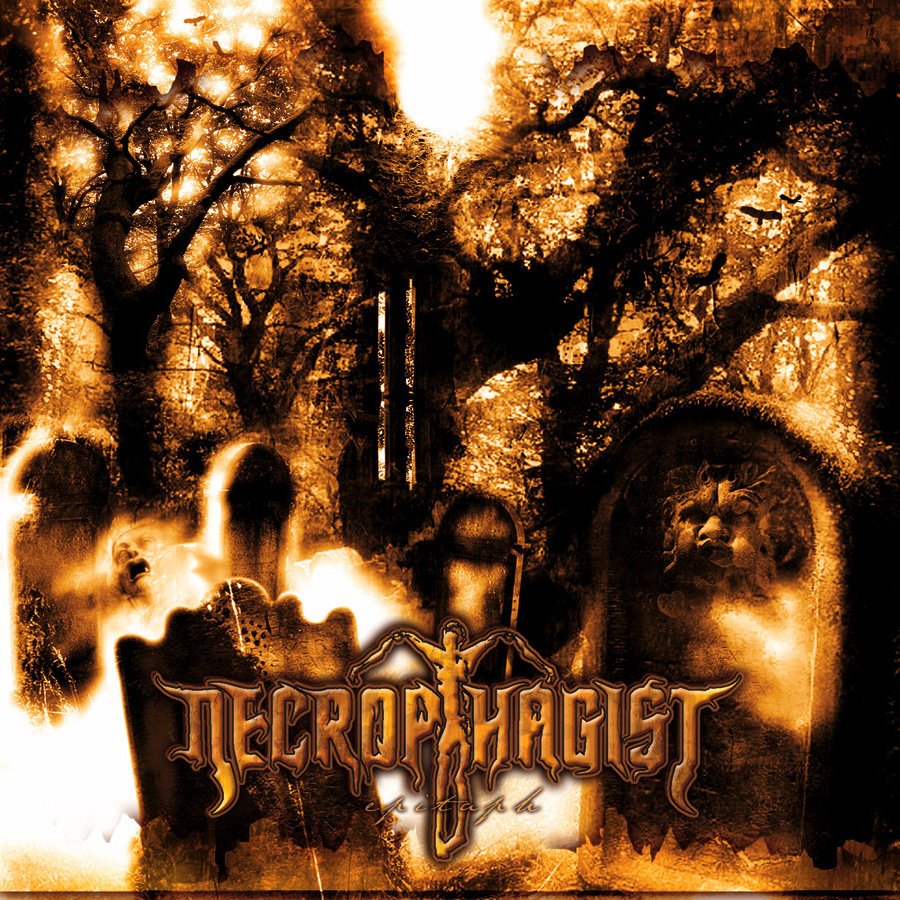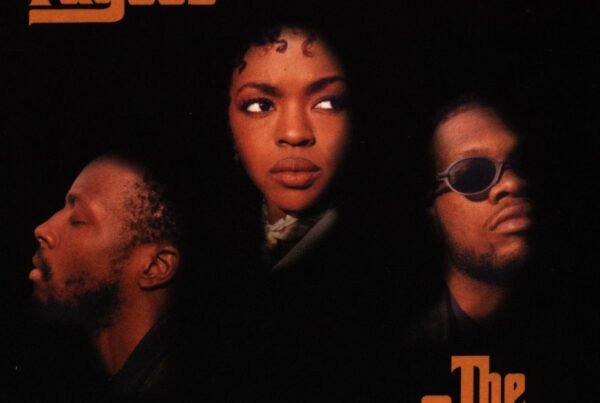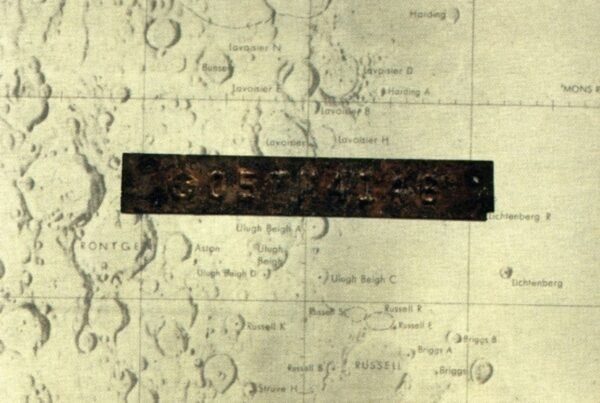Release date: August 3, 2004 | Relapse Records | Bandcamp
20 years is a mighty long time, especially in the music industry. Hell, you can be forgotten by your fanbase in much shorter time if you can’t produce something worthwhile in digestible intervals. Necrophagist would laugh at that notion. Their second (and to this date final) full-length Epitaph was released, you guessed it, 20 years ago, and nobody has forgotten about them; if anything, guitarist/vocalist Muhammed Suiçmez and co. only see their standing elevate with every year that goes by without a reunion. Their legendary status flies in the face of our current short-lived industry standard, which is hilarious, refreshing, and above all well-deserved.
Dylan Nicole Lawson
Epitaph was one of a few different pivotal points in my ‘death metal’ listening history. When your entry into death metal is Cryptopsy’s None So Vile and Blasphemy Made Flesh while you’re still in middle school, the bar gets set at a fairly high standard. But, even with that sort of listening experience, I was still quite easily impressed, being so new to the genre. By high school, I’d been getting into bands like The Faceless, Augury, Brain Drill, and had been into plenty heaping helpings of absolutely, utterly disgusting goregrind, grindcore, slam, and black metal bands… and that’s about when Necrophagist came along.
The idea of a guy being able to sing and play guitar simultaneously was always an impressive concept to my puny little brain especially back then, given that’s something that (even if I was fairly proficient at it myself at the time) I felt absolutely incapable of when playing guitar myself. So to get this man who can play insane tech-death riffs and chops all while spitting some of the meanest guttural vocal work I’d heard since None So Vile; only this time, I could actually kind of understand what he was saying (or ‘screaming’, rather, I guess)! ‘Wow! This has to be the next big thing!‘, I more or less would think to myself.
It’s hard for me to pick out a specific ‘favorite’, but I just know “Stabwound” was one in particular I’d come back to over and over again. That fast-paced intro with the sick drum fill starting off the song always got me, then you get this series of arpeggios as a theme of sorts followed by a nice groove, and a bassist shredding some sweep arpeggios too?! Holy shit! Badass! Absolutely the coolest thing on my iPod nano (throwback) at that time. Might I add, this was an iPod nano that also had Dan Black’s rendition of Biggie Small’s “Hypnotize”, which was some real hippy-dippy, indie-alternative, ‘oh this is a super artsy mash-up/remix type beat you can only find on YouTube by a guy who wears a cool scarf and lives in New York and sings like an Angel, probably 2deep4u’ type beat; so you know this iPod had quality on it. But back to Necrophagist…
“The Stillborn One” was another grooving track that even where things got a little more down-tempo, kept my head boppin’, as well as anyone else’s who rode in the ‘89 Toyota Camry I was driving leaving school and getting subjected to the wild listenings I’d have playing along the way. Somehow, even people I hung out with who weren’t into death metal much found something to appreciate about it. Take from that what you will, but, this record felt like more than just a collection of superb, technique-focused musicianship and intense, grotesque subject matter for lyricism; this album was a treasure, perhaps even a bonding moment for me and some pals, especially those early music nerds that I’d have long discussions about ‘how does he play this and still be able to do vocals like that at the same time?!’ with.
Even if “Only Ash Remains” of this band (see what I did there?!) anymore, sadly, and we may never see another Necrophagist album ever again, I think these guys sealed their name into history with this record, to some degree or another. Trends, interests, and just the focus on what anyone wants to write anymore has changed drastically, as it always does, all these years later. Even during the time they wrote this, things were changing, that’s just going to be music and art for you in any capacity. But, even if what people consider ‘good metal’ or ‘outdated’ to be differs a lot from what it was defined as when Epitaph was released, I don’t think you could find many who either do or don’t know this band and album, would listen to it, and not experience some level of ‘wow’ with it at the very least. Tech-death seems to bore most ‘metal dudes’ I know these days anymore, but, I’d like to think at least a song or two of this song would sell ‘em on the OG’s that are/were Necrophagist.
Paul Williams
So, first things first, modern tech-death isn’t really something I jump into much. If I’m incredibly honest, every now and again when I dip my toes into the tech-death pond I invariably find myself doing an impression of the Principal Skinner-’It’s the kids that are wrong’-meme. For every Owdwyr being technical and out there, there’s another ten bands that are technically sound but largely forgettable and sterile. Of course, if anyone wants to reach out and share some excellent tech-death that I may be missing I’d more than happily take some suggestions.
You know what isn’t forgettable? Necrophagist’s Epitaph – which is why we are being asked to take a retrospective look at it 20 years later.
This is probably in my top five tech-death albums and I would honestly be super shocked by anybody who liked death metal not having this within their top ten albums. I, and I think most people, would stand by it being that much of an influential album. It was a little bolt of lightning captured in a bottle by Muhammed Suiçmez and Christian Münzner, who I think are both quite easily contenders for the title of fathers of modern tech-death.
Of course, death metal had been technical before Necrophagist. Death, Atheist, and Cynic all played a hand in bringing more technicality and progressive elements into death metal. Nile had been spinning heads for a couple of years with their blistering speed, and Cryptopsy were already reveling in melting people’s faces.
Epitaph, however, hit that magic spot. It had everything all the other bands had brought to the table but melded them together to make a new baseline for us to use. Necrophagist had enough progressive tendencies and musical theory to get the nerds all randy while still keeping it brutal for the meatheads. Not to mention the production being polished enough to allow appreciation of the nuances of each band members’ playing while allowing the rugged groove-laden riffs to be super punchy.
Like a lot of important albums in my musical history, I remember exactly where I was the day I first listened to it. It wasn’t a particularly exciting place (the back of my mum’s car on the commute to school – see, not exciting) but holy shit, when I pressed play on “Stabwound”, my little 14 year old mind was blown and it was all I could do to not start uncontrollably thrashing along to the music. The mixture of frantic aggression together with pinpoint precision playing was jaw dropping.
We all know that feeling of listening to something for the first time that just gets all the happy juices flowing. Hell, “Stabwound”, even to this day, gets me smiling with that fervid intro; each instrument almost trying to outpace the other. While the bands ability to play at high tempos is something to write home about, the song writing stands out above everything else and Suiçmez really knew how to keep things interesting focusing on odd time signatures, for example, at the end of “Ignominious & Pale” or slowing things down before a solo marathon on “Symbiotic in Theory”.
Now I argued with myself over whether to really mention the elephant in the room and talk about how fans have been pining for Epitaph 2.0 for what feels like an eternity. Despite Münzner and Hannes Grossmann being adamant in interviews that there will not be a new Necrophagist album, and, if there is, they will not be involved, fans still seem to think this might happen. Suiçmez has pretty much disappeared off the face of the Earth and doesn’t seem interested in putting out another release.
If we are being honest, I like it like that, despite having been one of these people who complained about a lack of a follow up in the past. Epitaph was the right album at the right time to take death metal into the future and for that we should just be happy we got it in the first place.
Jake Walters
First of all, this album fucks. But you already know that. That’s why you clicked on this article to begin with, none of us are really learning anything new at this point. We’re here to revel and celebrate and bask in the love that we have for this album and this band. Necrophagist are legendary at this point due to the quality of their output as well as the mystique around the band and their notoriously short span of output. With their second and final LP, Epitaph, Necrophagist sent it. Full send. So let’s get into it.
The first thing that I love about this album is the way that it sounds. And I of course mean I love the way that it sounds with all the riffs and the notes and the beats and the timing changes and all of those notes that they can hit. But here I mean I love the production. It sounds perfect and alive and no matter the volume that you have it cranked to, it sounds aggressive and takes zero prisoners. No quarter. Sometimes technical death metal veers into colder territory as well, but Necrophagist keep things nice and toasty on this album. It feels welcoming and warm in a way that few records of this ilk do. We need more metal that feels this inviting.
An excellent production, however, can only do so much for an album. Well, let’s just say that virtually no heavy lifting was done by it on Epitaph. From the opening drum fills by extraordinaire Hannes Grossman are the first things that we hear on the opening track “Stabwound” and within seconds we’re getting sweep picking, furiously featured bass licks, and then those vocals drop in. It sounds amazing, yes, but we get a very gnarly thesis statement before the first minute has ticked by. It’s just fucking pummeling but also very easy to listen to if this set of ears has anything to say about it and the fact that it’s so smartly put together from the jump just makes this record a special one.
At around 32 minutes, Epitaph also knows how to get to the point without beating around the bush. Death metal, especially the kind that Necrophagist put on display, can be really exhausting. Sometimes that’s the point, but in most cases, less is more. Each song is economical, efficient and kicks ass more than most songs have the right and that pacing keeps things moving. And given that each song is jammed with so many sweeping arpeggios and blast beats, the NPM (ahem…Notes Per Minute) of this album has to be a record high in that metric.
Not that anyone has asked but if I had to point to a favorite riff on this record it would have to be the opening licks of “Diminished to B”. It’s airy, lightly melodic, and is in some ways reminiscent of a riff that Chuck Schuldiner would have written, had his tastes skewed even heavier. Of course, there’s no shortage of banging moments on this record and some of them feel just as fresh as the first day that I heard them, even though this album feels like an old friend.
While swan songs are often way too late in a band’s catalog, when the creative juices have been completely wrung, Epitaph is a record where the exact opposite is true. Necrophagist was a band that was on a meteoric rise of creativity and the thing that will always haunt is what could have been. The incredible songwriting, the technical prowess, all of it is lightning in a bottle. Technical death metal lightning, the best kind. While the ‘best’ album of any given genre is a folly in my eyes, Epitaph stands as one that could easily take home such a prize.
Toni Meese
God. I have been waiting for this. For those who are part of the Everything Is Noise team, it’s no secret that I’m a legitimate Necrophagist stan. Don’t get me wrong, I’m not ‘that metal guy’ anymore, but every time I put on Epitaph (which happens surprisingly often), my hair magically grows longer and I start propelling myself like crazy – nothing I can do about it, and to be fair, it feels right. But what is it about this album that makes me go into full caveman mode?
Before we get into the album itself, it’s appropriate to properly introduce Necrophagist themselves. After all, this band may have burned brightly, but not for very long. To be fair, Necrophagist have been around since 1992, as a death metal bedroom project before it was cool. Muhammed Suiçmez, the son of Turkish immigrants living in Germany, was only 17 at the time. At the end of the ’90s, he released Necrophagist‘s first album, Onset Of Putrefication. Even at that time, Suiçmez’s project had a tendency to have a high turnover of band members, a trait that would eventually lead to a staple of Necrophagist‘s; Suiçmez basically recorded and produced Onset Of Putrefication on his own, with the help of a drum computer. Despite the somewhat amateurish circumstances, Necrophagist‘s debut turned some heads in the underground metal world.
In the early 2000s, the project hit a sweet spot with its line-up. Christian Muenzer (who ended up being one of the most prolific tech-death shredders and was/is part of projects like Defeated Sanity, Spawn Of Possession, Obscura, and Alkaloid) joined the band, Stefan Fimmers (who served as the band’s bassist until their ‘hiatus’) and drummer Hannes Grossmann (similar to Muenzer, a tech-death idol of his craft, also a bandmate of Muenzer’s in Obscura and Alkaloid) joined the band – a group of musicians that ended up having the infamous ‘lightning in a bottle’ energy.
There’s more to the story of Necrophagist, especially the messy hiatus and the nasty ‘will they-won’t they’ discussions about their comeback and an alleged third album that dominated metal forums all over the Internet for years. This stuff is complicated, and there are rumors and weird stories – there is even a video on Youtube of a guy trying to find Muhammed Suiçmez at the place where he is supposed to work (based on rumors, of course). It’s wild. But not the subject of this feature. Let’s go to Epitaph.
The recipe of Necrophagist‘s second album is nothing special in the world of tech-death. Razor-sharp riffs, head-spinning solos, intricate dynamics – but there is something missing from almost all tech-death bands, something Epitaph has in abundance: it’s so damn catchy. While the album is stunningly impressive from a technical standpoint (some of those solos are just fucking insane in their clarity), there are so many riffs and solos that will stick in your head for as long as you have a sweet spot for tech-death. For example: I absolutely love the main riff in “Seven”. The rhythm of the riff is so moving and bouncy, and also surprisingly simple (at least compared to the general technical level of the album), but it shows an impressive detail that might explain the album’s popularity.
Yes, Epitaph is flashy, but while a lot of tech-death bands rely solely on flashiness to flex and distract you from the fact that they can’t write a good song, Necrophagist‘s flashiness serves a much more elegant purpose. These songs have character. They are memorable, and the aforementioned use of dynamics, with regular moments of mid-tempo groove, is what makes Epitaph such a pleasure to listen to. While there doesn’t seem to be a larger concept connecting the songs, the album contains a palette of ideas that recur, especially motifs in solos and harmonies. Each song shines on its own, but when I put Epitaph on, I can’t resist listening to the whole thing – it’s not that long. Everything is just right.
This is a love letter to a million notes, all in exactly the right place. To a man who is apparently not easy to work with, but who radiates an artistic light that attracts musicians at the top of their game. Epitaph is one of my ultimate ‘lightning in a bottle’ albums, with stunning parts that are far greater than the sum of those parts. Every great love letter ends with a quote from romantic poetry, and who am I to dismiss that tradition?
‘Invisible blades penetrate
Whereas stabwounds are not detectable.‘






